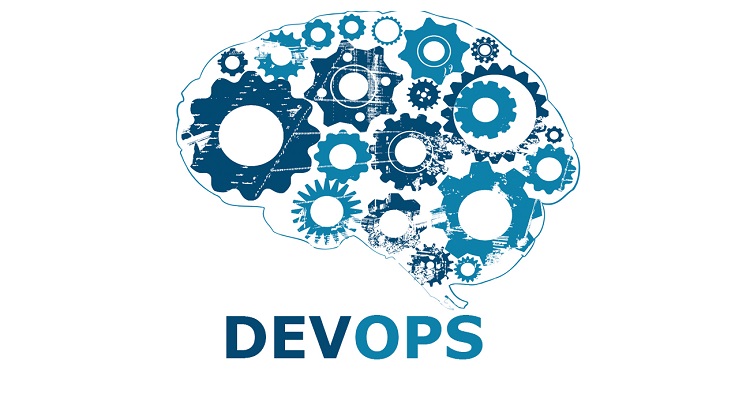
Introduction
In today’s rapidly evolving digital landscape, efficient software development and deployment are critical for staying competitive. Embracing DevOps practices has become imperative, and when combined with the robust capabilities of Amazon Web Services (AWS), organizations can unlock unparalleled agility, scalability, and reliability. Moreover, This synergy enables seamless automation, collaboration, and continuous delivery throughout the software development lifecycle. As businesses strive to innovate faster and deliver value to customers, leveraging AWS’s suite of DevOps services—from CodePipeline to Lambda—provides the foundation for accelerating development cycles, enhancing product quality, and optimizing resource utilization in the dynamic world of cloud computing.
Why Use DevOps for AWS?
Using DevOps practices in conjunction with AWS (Amazon Web Services) offers numerous benefits for organizations aiming to streamline their software development and deployment processes. DevOps emphasizes collaboration, automation, and continuous delivery, which aligns well with the capabilities provided by AWS services. Moreover, DevOps Online Training helps you make the best use of both platforms for greater efficiency.
Here are some key reasons for using DevOps with AWS:
- Agility: AWS’s cloud infrastructure allows for rapid provisioning and scaling of resources, enabling DevOps teams to respond quickly to changing requirements and market demands.
- Automation: DevOps practices promote automation of various stages in the software development lifecycle, such as infrastructure provisioning, testing, and deployment. AWS offers a wide range of automation tools like AWS CodePipeline, AWS CodeDeploy, and AWS CloudFormation to facilitate this automation.
- Scalability: AWS provides on-demand access to scalable computing, storage, and networking resources, allowing DevOps teams to easily scale their applications up or down based on demand without worrying about managing physical infrastructure.
- Reliability: AWS offers a robust and reliable cloud infrastructure with built-in redundancy and high availability features. DevOps practices such as infrastructure as code (IaC) and automated testing help ensure the reliability and resilience of applications deployed on AWS.
- Cost Efficiency: By leveraging AWS’s pay-as-you-go pricing model and optimizing resource utilization through DevOps practices like auto-scaling and right-sizing, organizations can achieve cost savings compared to traditional on-premises infrastructure.
Important DevOps Tools for AWS
Utilizing DevOps services in conjunction with AWS (Amazon Web Services) can significantly enhance an organization’s software development, deployment, and operations processes. AWS offers a plethora of services that cater to various stages of the DevOps lifecycle, facilitating automation, collaboration, monitoring, and more.
Below are some important DevOps services provided by AWS:
AWS CodePipeline
- Purpose: CodePipeline is a continuous integration and continuous delivery (CI/CD) service that automates the build, test, and deployment phases of the software release process.
- Key Features: It integrates with various AWS and third-party tools, allowing for a customizable pipeline workflow. Further, CodePipeline supports multiple deployment targets such as AWS Elastic Beanstalk, Amazon ECS, AWS Lambda, and Amazon S3.
AWS CodeBuild
- Purpose: CodeBuild is a fully managed build service that compiles source code, runs tests, and produces deployable artifacts.
- Key Features: It supports popular programming languages and build tools, and it seamlessly integrates with other AWS services like CodePipeline for automating build processes.
AWS CodeDeploy
- Purpose: CodeDeploy automates the deployment of applications to a variety of computing services such as Amazon EC2 instances, AWS Lambda functions, and on-premises servers. You can join the DevOps Certification Course for the best training in this field.
- Key Features: It facilitates automated deployments with minimal downtime, supports blue/green deployments for safer releases, and provides detailed deployment status and monitoring.
AWS CodeCommit
- Purpose: CodeCommit is a fully managed source control service that hosts Git repositories and provides secure and scalable storage for code assets.
- Key Features: It offers Git-based version control, branch management, access control using AWS Identity and Access Management (IAM), and seamless integration with other AWS DevOps services.
AWS CodeStar
- Purpose: CodeStar is a unified development environment (IDE) for building, managing, and deploying applications on AWS.
- Key Features: It provides project templates, code repositories, CI/CD pipelines, and collaboration tools, streamlining the setup and management of AWS DevOps workflows for teams.
AWS CloudFormation
- Purpose: CloudFormation enables infrastructure as code (IaC) by allowing users to define and provision AWS resources using JSON or YAML templates.
- Key Features: It automates resource provisioning and management, supports versioning and rollback, and integrates with other AWS services for building repeatable and scalable infrastructure deployments.
AWS Lambda
- Purpose: Lambda is a serverless computing service that allows users to run code without provisioning or managing servers.
- Key Features: It supports various programming languages, event-driven architecture, and automatic scaling, making it ideal for implementing microservices and event-driven workflows in DevOps environments.
AWS Elastic Beanstalk
- Purpose: Elastic Beanstalk simplifies the deployment and management of web applications by automatically handling the provisioning, scaling, and monitoring of underlying infrastructure.
- Key Features: It supports multiple programming languages, application frameworks, and environment configurations, enabling rapid application deployment and easy integration with CI/CD pipelines.
AWS Systems Manager
- Purpose: The Systems Manager provides a unified interface for managing AWS resources, automating operational tasks, and monitoring system performance.
- Key Features: It offers capabilities such as a parameter store for managing configuration data, automation for executing common tasks, and Run Command for running commands on multiple instances simultaneously.
AWS CloudWatch
- Purpose: CloudWatch is a monitoring and observability service that collects and tracks metrics, logs, and events from AWS resources and applications.
- Key Features: It provides real-time insights into application and infrastructure performance, supports customizable dashboards and alarms, and integrates with other AWS services for automated remediation and scaling.
By leveraging these DevOps services provided by AWS, organizations can streamline their software development processes. Furthermore, DevOps Online Training helps one improve collaboration between development and operations teams, accelerate time-to-market, and enhance the overall agility, reliability, and scalability of their applications deployed on the AWS cloud.
Conclusion
Incorporating AWS’s DevOps services empowers organizations to streamline their software development lifecycle, fostering automation, collaboration, and agility. Moreover, By leveraging tools such as CodePipeline, CodeBuild, and Lambda, businesses can achieve faster delivery, higher quality, and improved efficiency in their application deployment on the AWS cloud.



